#goodbye my princess
Explore tagged Tumblr posts
Text
The thing about watching K-dramas, C-dramas, or J-dramas is that when I want more about my favourite ships from fanfictions, 90% of the time that means I have to write the stories myself.
#kdrama#cdrama#jdrama#burn the house down#the double#who rules the world#goodbye my princess#house of ninjas#shogun 2024#fireworks of my heart#mr queen#twinkling watermelon#goblin#guardian the lonely and great god#sweet home#strangers from hell#bad and crazy#tale of the nine tailed#coffee prince#little women kdrama#touch your heart#law school kdrama#welcome to waikiki#18 again#and many more
347 notes
·
View notes
Text
I've not been super consistant between titles and personal names, but i've tried to use whatever they're better known as.
Write-ins, propaganda, and images are welcome!
EDIT - Xiaoyanzi is actually from My Fair Princess I just made a mistake when making a poll
#cdrama poll#poll#mysterious lotus casebook#ascending do not disturb#nirvana in fire#goodbye my princess#the princess royal#the long ballad#jun jiu ling#who rules the world#lost you forever#the myth#my fair princess
59 notes
·
View notes
Text








That is SUCH a gorgeous first meeting! And of course she doesn't know he's the lord of the north who denied them sanctuary and ordered archers to shoot at them and he doesn't know she's that princess.
Mmmm, wind blowing off her red veil into her hands...




This said, a noble princess rescuing gorgeous royal strangers who give you a fake name in the desert never ends well. Last time I've seen it was here:

I mean, he even tells her he is a merchant:

And we have DEF seen that before:
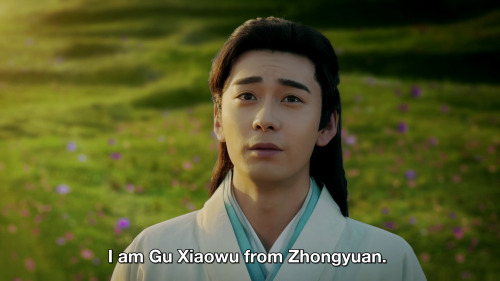
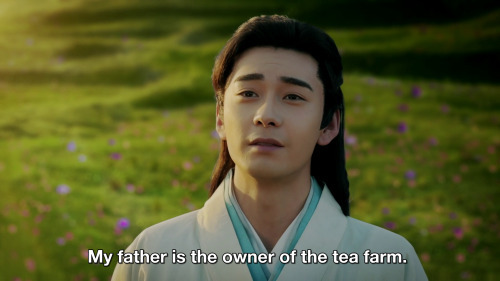
I hope it ends happier than GMP at least!
#cdrama#love in the desert#goodbye my princess#chen xing xu#peng xiao ran#hanikezi#hankiz omar#fang yilun
43 notes
·
View notes
Text
A while back I realised that there's one specific fictional thing that is catnip to me, and that is vulnerability. People accuse me of liking dire things in stories, but it's not so much that I love it when fictional people are suffering. It's that I kind of crave vulnerability in my protagonists.
I would define vulnerability as the opposite of agency. At its core, it involves a denial or a willing sacrifice of agency, and while writers talk about agency a lot, I don't think we spend anywhere near enough time discussing vulnerability.
Vulnerability is incredibly powerful in building empathy with a character, but it also forces the character into dire choices that reveal their true nature, and it makes the antagonistic forces seem a lot more powerful and scary. Vulnerability is why whump is appealing. It's one of the reasons we all care so much about out good fried Jonathan Harker, utterly at Dracula's mercy. It's why the myth of the voluntarily dying god is so powerful, even if you aren't a Christian.
More recently, I've been thinking a whole lot about how important vulnerability is in constructing a believable romance. In a believable romance, the characters will be emotionally vulnerable to, and on behalf of, one another. The "if you dare touch her" trope where the love interest comes unhinged at the sight of a loved one's suffering is vulnerability. Enemies to lovers is delicious because it asks what might happen if the person to whom you're most vulnerable was also the one with the greatest interest in exploiting that vulnerability. As I've written before, romance is about trust; and the corollary is that no romance can live without that heartstopping moment when one character takes the risk of putting themselves helplessly into the power of the other.
But I think that a lot of storytellers these days are prioritising agency at the cost of vulnerability. Disney's attempts at feminism are a great example of this. While the animated MULAN is outed as a woman in a moment of vulnerability that was the most powerful thing in the movie for me, in the live action Mulan's unmasking becomes a expression of agency that in my opinion guts the story of feeling. On the other hand, in the cdrama I'm currently watching (GOODBYE, MY PRINCESS) the male lead is SO averse to letting himself be vulnerable in any way at all that I simply can't find any romance in his interactions with the heroine. I love to see stories that foreground marginalised people, but too often those stories focus on giving the protagonist agency at the cost of letting the antagonist land any hits at all. The result, imo, is a perfectly soulless story.
Of course, agency is a sine qua non of a good protagonist. But so is vulnerability, and there are so many amazing stories you can write about a vulnerable protagonist. W R Gingell's CITY BETWEEN series, for instance, is the story of a desperately vulnerable protagonist fighting to claim some agency in her own life and it's GLORIOUS. And beyond that, I would say that moments of vulnerability are indispensable even to very strong protagonists. One of the reasons FULLMETAL ALCHEMIST worked so gorgeously as a story for me, for instance, was the gutpunch moments of vulnerability that happened both at the very start and then with increasing tempo toward the end.
Vulnerability can be something a protagonist constantly struggles with, or something that unexpectedly blindsides someone who seemed to be invincible, or something a character does willingly for the sake of the people they love. It can be romantic, or not at all. But either way it's the interplay of agency and vulnerability that really MAKES a story for me. You HAVE to have both.
#writing#writing advice#writing tip#jonathan harker#dracula#mulan#disney remakes#the city between#fullmetal alchemist brotherhood#goodbye my princess
205 notes
·
View notes
Text








PERIOD DRAMA APPRECIATION WEEK 2024
Day 4: Favourite Relationship: Qu Xiao Feng and Li Cheng Yin, Goodbye My Princess (2019)
#perioddramaappreciationweek24#goodbye my princess#东宫#cdrama#cdramaedit#period drama#perioddramaedit#seriesedit#my GIFs#queued post#is this a healthy relationship? HELL NO#is it compelling to watch LCY destroy his own life and everyone else's *twice over*? hell yes!#the flashbacks to their original (happy but no less doomed) wedding in the middle of their second wedding are just *chef's kiss*
50 notes
·
View notes
Text


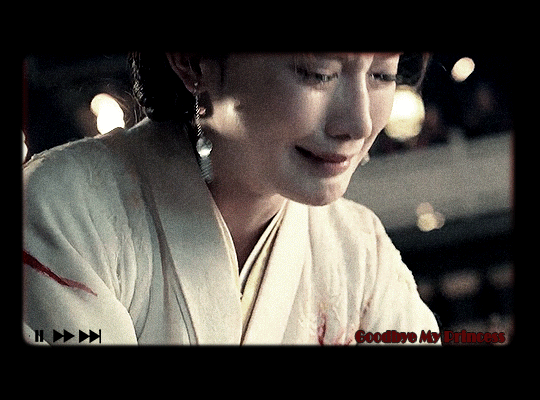
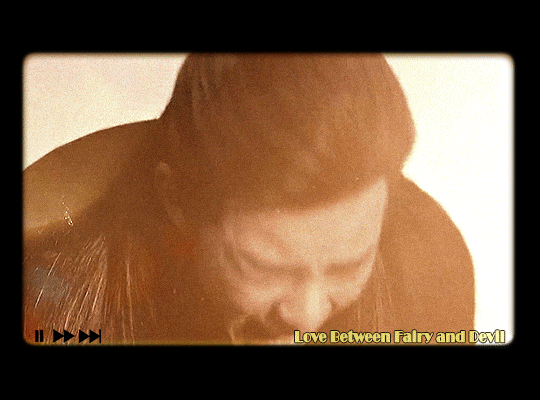


@userdramas event 12: LOSS
Life today is like a glass reflecting Nothing more than my own grieving eyes...
#cdramaedit#userdramas#cdrama#asiandramanet#cdramasource#dailyasiandramas#asiancentral#who rules the world#the blood of youth#goodbye my princess#love between fairy and devil#ancient love poetry#heroes#说英雄谁是英雄#multi#tuserjade#mymymy#PLAY IT ON REPEATTTTTTTTTTTT#known fact... I LOVEEEEEEEEEE Death in dramassss#i loveeeeee putting my characters thru the ringerrrrr with loss of someone closeeee im atrociousss i knooooo#I WANT BREAKDOWNNSSSSSS I WANT PAINNNNNN#even when its unnecessary as long as it gives me the Aestheticcccc and LOOOOOKS... im fine with it#there are like 15 other good sobbing drama moments i can think of but these are just the really pretty ones i like to remember nowadays#my heart got stabbed on every last one these mmhmm#i wanted to participate in an event again so i literally put off every other show giffing to do this lollololol now i need a nap
115 notes
·
View notes
Text

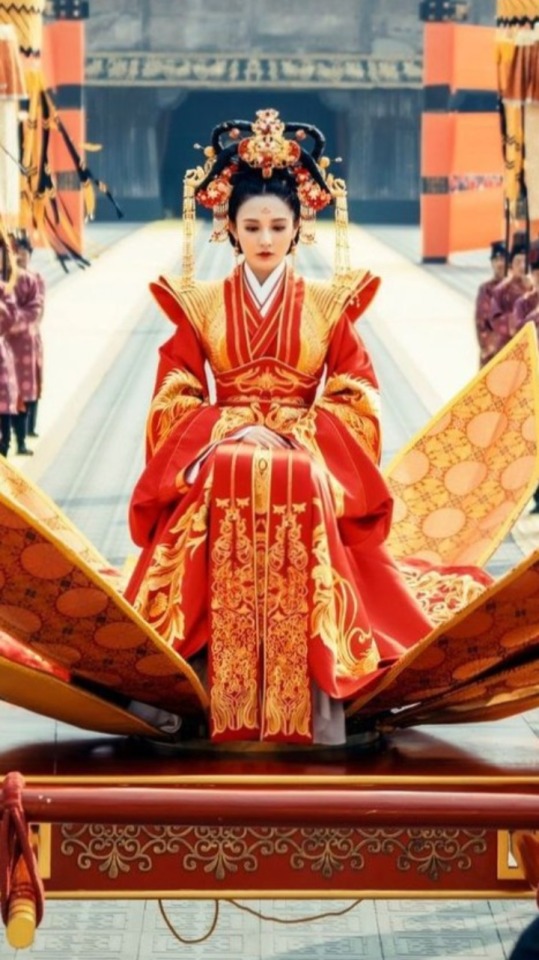

Period dramas dresses tournament: Red dresses FINALS!- Gongsun Li, The king's woman (gifset) vs Qu Xiaofeng, Goodbye my princess (pics set) vs Lucrezia Borgia, The Borgias (gifset)
#period drama dresses tournament#tournament poll#tumblr tournament#polls#fashion poll#gongsun li#the king's woman#qu xiaofeng#goodbye my princess#lucrezia borgia#the borgias#red finals#tournament finals
54 notes
·
View notes
Text
My re-watch of Til the End of the Moon has made me start devouring the original novel lol. I can only rewatch so many times
If anyone has a rec that can help me through this obsession please let me know!

And if anyone is looking for a similarly unhinged love story then may I recommend
Goodbye My Princess (cdrama)

The Great Queen Seondeok (kdrama)

Empress Ki (kdrama)

Bu Bu Jing Xin/Scarlet Heart (cdrama)

#cdrama#kdrama#til the end of the moon#goodbye my princess#words by me#empress ki#queen seondeok#bu bu jing xin
9 notes
·
View notes
Text
hello, fellow kids
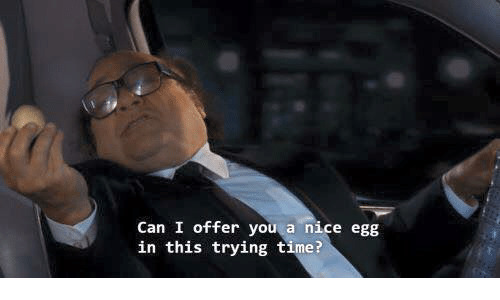
some recovery options for the ending of till the end of the moon:
want luo yunxi and bai lu actually happy, together, and in love? check out love is sweet
want an epic xianxia full of multiple lifetimes, angst, a male lead who experiences a lot of aesthetic suffering and outfit changes, but manages to stick the landing and deliver a coherent and happy ending? try love and redemption
or maybe you’re feeling the other way, and want a time travel romance that ends bittersweetly due to the inevitability of its conclusion, but still makes narrative and cohesive sense? try someday or one day
want to see a costume cdrama male lead get to go a little unhinged, as a treat, but still have a good ending? try love like the galaxy
want to see a costume cdrama male lead go a lot of unhinged, as a threat, but decidedly not get a good ending? try goodbye my princess
feel free to add some drama bandages!
#till the end of the moon#love is sweet#love and redemption#someday or one day#goodbye my princess#love like the galaxy#cdrama#twdrama
213 notes
·
View notes
Text
Watching Goodbye My Princess and can't help but think "aahhh yes, you scheming murderous man, keep scheming your way up to the lonely throne"
#and as always. thinking about how cang xuan would thrive#jina watches cdramas#goodbye my princess#li chengyin#cang xuan
18 notes
·
View notes
Text
What if your romantic male lead is a monster? - a bit of a love letter post to Goodbye My Princess and The King's Woman
I've been thinking about these two dramas, and how much I love them. Now that a lot of airing cdramas I was loving finished, I have room and might end up rewatching either of them.
Goodbye My Princess is set in a fictional kingdom and has fictional protagonists and The King's Woman follows the very real founder of the Qin Dynasty and a fictional woman he loves but what both of them do so so so well is posit "what if our romantic male lead was a monster. A monster in love" and take that to its logical conclusion.
A little backtrack - there are of course plenty of narratives that have monstrous male leads, but the thing is - usually the narrative has them redeemed by love or, infuriatingly, does not agree with the viewer/reader's assessment of the male lead's monstrosity. Here, GMP and TKW confront the monstrosity head on - it is real and the love they feel is also real but there is no happy ending or redemption. A monster can love, but he (or she) is much more likely to destroy the object of their affection or drag them down to monstrosity with them; best case scenario, the other person leaves. But few narratives have the nerve to go that way - to portray that love as epic, as real, as everything - and yet end in destruction.
I confess I am very fond of any narrative of how one of the couple being ruthless/bad/whatever and not redeeming themselves has an impact on their relationship. Other dramas that do different variations of that flavor (Empress Ki, where both of them do not start out as monsters and both end up monsters together, or Princess Agents and The Outsiders, where ML starts out as a wonderful person who becomes monstrous for totally understanding/sympathetic reasons etc etc, or even politically ruthless men who save their softness for their personal life because it's safe to do so (The Advisors Alliance or one of the couples in Eternal Brotherhood) are all faves.) But nothing does it for me as much as "he was a monster from the moment FL met him, and he loved her more than his life, but it didn't fix anything and made it worse."
It's so beautifully bleak and I love it so much!
The King's Woman was the last Dilraba drama I truly loved:
youtube
And GMP the only drama of these leads I enjoyed:
youtube
But it was all so very worth it.
88 notes
·
View notes
Note
Can u suggest some cool dramas, enemies to lovers/ bad boy gud girl??
Please 😭😭😭💜
No idea when this was sent in but hopefully you’re still around because I have a few:
- Story of Kunning Palace - 100%
- Till the End of the Moon - 101% because they spent more time at each other’s throat than doing anything else
- The Princess Royal - technically I haven’t finished this but I did get this vibe from the beginning
- Who Rules the World - tbh, they’re more rivals to lovers but it’s still cute
- Goodbye My Princess - oof, maybe 100.5% because my goodness, do I remember constant fighting in this drama
- Princess Agents - lol, yep. But watch Legend of Shen Li after to soothe the soul (it’s not quite enemies to lovers but it’s super duper cute/epic and makes up for PA’s ending)
- Princess Silver - …this depends on who you’re rooting for
- Scarlet Heart - they weren’t outright enemies but she certainly avoids him
- What’s Wrong With My Princess - this is a web drama, it��s pretty good for being so short.
Ngl, thought there were more EtL dramas that I’d seen. I’ve thought about Love Between Devil and Fairy and My Journey to You but I’ve not seen enough of those to say for certain they were EtL!
#steph watches dramas#cdrama#till the end of the moon#goodbye my princess#Princess agents#scarlet heart#story of kunning palace#who rules the world#the princess royal#Princess silver#what’s wrong with my princess
13 notes
·
View notes
Text
Trope Talk: Villain Romance
So, I was watching a villain romance cdrama again lately (GOODBYE MY PRINCESS) and it has been forcing me to think about what makes some villain romances work for me so well, and others…not so much.
First of all, a lot of my comments on romance at large, and on enemies-to-lovers as the broader trope to villain romance, apply here. For me, GOODBYE MY PRINCESS failed on a few different levels. It failed as a romance because the male lead so rarely, if ever, allowed himself to be vulnerable to the female lead that I couldn't believe either of them could genuinely be falling for each other. It failed as an enemies-to-lovers story because the female lead didn't feel like a match for the male lead in terms either of power or of morals: he was irredeemably awful and held all the power in the relationship, while she was unquenchably pure and naive, holding no power at all. But then, it also failed for me as a villain romance, and because I eat up villain romance with a spoon (WUTHERING HEIGHTS? THE LAST JEDI? LOVE BETWEEN FAIRY AND DEVIL? TILL THE END OF THE MOON? That ONE SCENE in RICHARD III? yess?) I've spent a lot of time thinking about different kinds of villain romance, how some are easier to "sell" to an audience than others - as a convincing HEA, I mean - and how each of them can and can't be made to work.
So far, I think a lot of it has to do with how the villain is built. First off, how does the villain present himself to the audience and other characters? Second, does the villain get a character arc, and is it for the better, or for the worse? Finally, does the villain have genuine feelings for the heroine, and does he achieve a happily ever after with her? Or, in other words: where does your villain come from, where is he going, and how does he get there?
There are a few different choices awaiting the author here, and some of them are, I believe, easier to sell an audience than others. Let's begin with the villain's character arc over the course of the story.
POSITIVE CHANGE VILLAIN This one is the classic: your villain love interest starts out bad, but gets better. See: Erik from THE PHANTOM OF THE OPERA, Kylo Ren/Ben Solo in the STAR WARS sequels, Nux in MAD MAX: FURY ROAD, Dongfang Qingcang in LOVE BETWEEN FAIRY AND DEVIL, Thyme in F4: THAILAND.
Redemption arcs are honestly not easy to write, because they need to satisfy both justice and mercy; and authors, like everyone else, tend to want to prioritise one over the other. It's interesting that of the five examples of this trope I listed above, not one of the three the Western examples end in a HEA; two out of three equate redemption with death. Meanwhile, I could also note how the Asian examples pull their punches when it comes to facing the villain with the consequences of his actions, and these are some of the BEST examples.
Still, audiences can pull for a character who's clearly capable of learning from his mistakes, and we all want to inhabit a fantasy where a terrible man learns better and earns his happy ending. I've written this kind of villain romance a couple of times, notably with Vasily in my gaslamp books. Basically, if you plan to have a HEA as an endgame in your villain romance, a positive arc is the best way to make a longterm relationship convincing.
ANTIHERO WITH IMAGE PROBLEMS This one is a bit more complicated. The love interest starts out well and gets better, but along the way he struggles with a dark side and an unfortunate predilection for angry black clothing and eyeliner. He isn't so much as a villain, as a well-meaning antagonist desperately trying not to live up to his dark reputation. See: Tantai Jin from TILL THE END OF THE MOON, but also Galadriel Higgins from THE SCHOLOMANCE books by Naomi Novik, who is in a very similar predicament though not part of a villain romance.
This one is tricky to write, because there aren't a lot of ways a genuinely well-meaning person is going to convincingly pose as an existential threat to the universe. Both TTEOTM and the SCHOLOMANCE books pull it off by invoking the future, either through time travel or through prophecy: the antihero is going to become the Dark Lord/Lady and destroy the world. This makes them a target in the present, and gives them a threatening dark side to struggle against. In TTEOTM, Tantai Jin is torn between his vindictive impulses to revenge himself on those who have wronged him, and his natural longing for the love of others. In this case, it's not so much that he's a villain intrinsically, as that he plays that role in the heroine's head.
I've never written one of these, except as a stage in a positive change arc, but it's a really fun character type that I'd genuinely love to see more of.
NEGATIVE CHANGE HERO This is another classic: the hero who lives long enough to see himself become the villain. See: Anakin Skywalker from the STAR WARS prequels, Heathcliff from WUTHERING HEIGHTS, or Wang So from SCARLET HEART RYEO. If the Antihero With Image Problems withstands the temptation to become a villain, then this character succumbs with more or less struggle. He ususally also doesn't get the girl. In face, the heroine often doesn't survive this sort of story at all.
Audiences have less trouble with this kind of story, because it can come across as properly cautionary. "If you fall in love with someone who gets a villain arc, you will die, and it is probably your fault." Everyone is happy, except the characters. Personally, I think this is realistic, because I don't think a thorough-going villain CAN be a stable longterm relationship; but just once, instead of dying, I really would like to see the heroine nope out and go to live her life in peace and quiet, as happens in the wonderful Daisy Ridley OPHELIA film.
I've actually never written one of these, either, mostly because I've never been able to bring myself to write a tragedy. But I do love reading them.
UNREPENTANT VILLAIN Or, Bad Man With a Crush. This is another really common iteration of the trope, but it's usually played from the point of view of the male hero, and the heroine usually doesn't reciprocate the villain's interest in any way. The great exception to this, of course, comes in Shakespeare's RICHARD III, where the unrepentant villain convinces the widow of one of his murder victims to marry him because he's THAT GOOD. Watching Laurence Olivier in this role at 13 may have been a formative moment of my life. Other examples are thick on the ground: Frollo from THE HUNCHBACK OF NOTRE DAME, Scarpia from TOSCA, the Darkling in SHADOW & BONE. Heck, I've written at least one of these myself.
Again, audiences expect this kind of villain either not to have his feelings returned or, if they are, to see either the heroine or the villain die by the end. In fact, this villain is the sort most likely not to have genuinely romantic feelings for the heroine at all; it's usually simply lust. The only example I mentioned where the villain arguably does have more complicated feelings for the heroine than a mere appetite for sex and power, and where she is tempted to reciprocate, is the one written by a woman, SHADOW & BONE - because a female writer is going to treat her heroine as a more fully orbed person, and insist on male characters treating her the same way.
-
The second question to ask when writing a villain romance is: how does the villain present himself to others, including the audience? Again, there are a few options here, but in any case I think one of the most important ingredients, if you're going to make the audience care about the villain, is a sense that the villain COULD be a better person than he is.
SHEEP IN WOLF'S CLOTHING The villain projects a terrifying image, but deep down he has a heart of gold. Note that this is not about character arc (for instance, this describes both Tantai Jin, who is an antihero on a positive arc, and Wang So, who is a hero on a fall arc). Rather, it's about how other characters, and the audience, view the character throughout most of the story.
A Sheep in Wolf's Clothing is easier to "redeem" because half the work is done when you show that after all, the character is better than we thought, and doesn't need as much work to be redeemed. For this reason, it's a really good choice in any sort of villain romance, because you get someone who LOOKS bad but is in fact plausible as someone who IS capable of changing and learning.
Vasily from my Miss Dark series is definitely a sheep in wolf's clothing, which is extremely fun to write. Vasily's had a traumatic change of heart which has taken away his taste for blood, treachery, and power. His habits haven't quite caught up with his heart, yet, and his determination to hold onto a semblance of power and terror makes him desperate to playact as a villainous vampire prince even though he's none of those things any longer.
SHEEP IN SHEEP'S CLOTHING I was nearly not going to include this variant at all, because where's the villainy in that? But then I remembered Anakin Skywalker. Anakin has a dark side, like Tantai Jin, which he gives into on occasion, but the prophecy that he will bring balance to the Force seems to predict a bright future for him. And he genuinely is a well-meaning person, who only wants to protect the people he cares about. For most of the story, Anakin is a good person and an upstanding Jedi with a bright future. This only makes his eventual downfall more tragic.
While how the villain presents himself is not always linked to a particular arc, this one is, since it requires a genuine hero to begin with. As I mentioned above, this kind of fall usually spells death for the heroine. I think this particular villain romance tends to be underexplored, because the freaks who like villain romance aren't into the aesthetic of a genuinely good man being corrupted, while those who write the downfall arc usually aren't into the aesthetic of villain romance. Nobody has ever written a romance about the Macbeths, and this strikes me as a missed opportunity.
WOLF IN WOLF'S CLOTHING This villain is exactly as bad as he appears on the outside, but if he's lucky, big changes are coming for him. In LOVE BETWEEN FAIRY AND DEVIL, Dongfang Qingcang is about to have his cold dead heart magically melted. In FALLING FOR INNOCENCE, Kang Min-Ho is literally given a new one. As a Christian, I love seeing fantasy elements used to explain why the wolf in wolf's clothing is suddenly forced to trade a heart of stone for a heart of flesh, because in Christianity the only way this ever happens is through a literal miracle.
And I do think this kind of villain IS difficult to redeem for his HEA without some kind of miracle, because he's genuinely done some dreadful things, and he's determined not to repent for any of them. Kylo Ren from the STAR WARS sequels is a really excellent example of a Wolf in Wolf's Clothing: when Rey spits at him, "You're a monster!" he responds almost proudly, "Yes, I am." In a way, the Wolf in Wolf's Clothing's honesty is his one redeeming feature: he may be terrible in almost every way, but he never pretends to be a good man. This is something that the next option on the list lacks altogether.
WOLF IN SHEEP'S CLOTHING This villain looks like a good and upright person, but it's all a facade. In reality, he's conniving, ruthless, and manipulative, and whether he's a "hero" on a negative arc or a straight-up Unrepentant Villain, the story is about to unmask him as the bastard he is.
Western literature has a whole array of this type of character, and they're usually the smooth hypocrites of the canon: TOSCA's Scarpia, HUNCHBACK's Frollo, MEASURE FOR MEASURE's Angelo, KNIVES OUT's Ransom. There's just something particularly evil about someone who sees and experiences true goodness and sees it as his opportunity to mask his evil deeds, and that's why we recognise such people as irredeemable. This is why BLUEBEARD is one of the trickiest fairytales to retell, at least if you're interested in a HEA - because Bluebeard, unlike the Beast or Hades or any of the other dubious bridegrooms of fairytale literature, commits awful crimes while pretending to be an ordinary, upright businessman.
This is also where we find GOODBYE MY PRINCESS's Li Chengyin, who marries this with a corruption/fall arc. Very early on in the story, we see that although Chengyin has genuine feelings for the heroine, he's fully capable of betraying her and murdering her family for purely political motivations. At first, Chengyin is neither experienced nor hardened in evil, but he absolutely will betray anyone in his path if it will benefit his plans.
This sort of villain is particularly difficult to redeem, because he's someone who has approval and love already but chooses to destroy everyone around him anyway. He is also uniquely enraging, because we've all known people this terrible in real life - from high profile teachers and carers being caught in ongoing sexual predation, to that crumby ex-husband who traumatised your good friend. I don't think I've ever seen a character like this be convincingly redeemed, and while I think it COULD be done - I do have a Bluebeard retelling of my own up my sleeve - I do that, as with the Wolf in Wolf's Clothing, it would have to come with some kind of fantastical/miraculous explanation.
And in the end, let's face it, it's always most cathartic to see this sort of person get their comeuppance.
-
Third and finally, is your villain romance going to get a happily ever after? I'm one of those people who will get a lot of fun out of a romance that ends badly, like SCARLET HEART RYEO, or even something that isn't a romance at all, like RICHARD III and the ill-fated Anne Neville. But whatever you pick, I'm begging you, be very clear about whether the villain has genuine feelings for the heroine or not, and don't reward some horrible person who's never convincingly expressed care for another, with any kind of romantic validation.
HEA VARIATIONS Maybe your villain and heroine make a match of it. Most of the time this is because the villain undergoes a positive character arc to earn his happy ending, and I've got to say, this is a very sensible choice. I personally do not need to see an unrepentantly terrible person get any kind of longterm romantic relationship, either because he's trapped/deceived the heroine or because he's corrupted her to become as bad as himself; I honestly don't think that terrible people CAN have a successful longterm relationship. That said, I've written a relationship where the villain DOES make the love interest worse, but where ultimately the genuine love, empathy, and trust between them ultimately does drag both of them back to the light.
TRAGIC VARIATIONS There are a great many more options available here. The main thing I would say is that you have to give an ending that is justified by what comes before.
A common choice is to give the villain a positive arc culminating in a heroic death. I've seen this done well (FURY ROAD). I've seen it done terribly (RISE OF SKYWALKER). Personally I feel that unless the themes absolutely demand this, you should avoid it, because too often it comes across as the writers arbitrarily ridding themselves of a character they don't know what to do with.
Another common choice is to give the villain a negative arc culminating in the heroine/love interest's death. I've seen this done in ways I don't hate. In RICHARD III, Richard kills literally everyone he touches. In SCARLET HEART RYEO, death is a realistic result of the heroine's trauma and closes the door definitively on the villain's hopes for reconciliation; but it also returns her to her far better life in the future, so it becomes a glimmer of hope for her (though not quite enough). Too often, however, this choice carries with it sexist overtones. Death becomes the heroine's punishment for the crime of loving a bad man (or something else equally fatuous), while the villain is "punished" only by having to live without her.
What about a negative arc culminating in the villain's death? Well, I strongly disliked the choice made in SHADOW AND BONE, in which the heroine guts the villain while hissing "there is no redemption"; to me it was lacking in either tragic catharsis OR eucatastrophe. I think you CAN have a satisfying ending in which the heroine or somebody else kills the villain, but it needs to be an expression of catharsis or eucatastrophe, and we definitely need to feel that the villain is beyond saving - which, if you've made him a genuine romantic possibility, is often hard to feel.
I love the ending of WUTHERING HEIGHTS, in which the villain dies frustrated after realising that after all, cruelty and abuse DIDN'T have to turn him into a villain; he then reunites with the ghost of his equally terrible love interest. I also love the ending of OPHELIA, in which Ophelia, realising that Hamlet cannot be redeemed from his quest for vengeance, quietly nopes out and goes to live a happy life on her own. And then, there's the gold standard for bittersweet endings, THE PHANTOM OF THE OPERA, in which the villain doesn't get the girl, but neither of them have to die, and her compassion for him causes him to go off and live a better life on his own. I think the thing all these have in common is that even though none of them end with the couple together, they afford the whole story a sense of hope: cycles of abuse are broken, some people get better than they deserve, and even those that don't are doomed by their own actions, rather than being killed off in a way that feels punitive or vindictive. And I feel that this is an essential ingredient of tragedy: that justice arises naturally out of the villain's own actions rather than being imposed by some righteous warrior.
PUTTING IT TOGETHER Some of these options are easier to sell the audience than others. For instance, a Wolf in Sheep's Clothing on an Unrepentant Villain arc is absolutely not good material for a HEA romance, while a Sheep in Wolf's Clothing on a Positive arc is probably your best bet (it's a classic for a reason). Others, like a Wolf in Wolf's Clothing on a positive arc, may require careful handling to ensure that the audience is happy to come along for the ride. Whatever you choose, however, it pays to be conscious of which tropes you're using, where the audience has seen them before, and what they expect to see happen to the characters that enact them. This doesn't mean that you can't defy audience expectations, of course; just that it might take a little more work to bring the audience along with you on the journey that you've planned, and that it might not be wise to pick all the worst possible options and expect the audience to embrace the character in question. (cough Li Chengyin cough).
#goodbye my princess#li chengyin#cdrama#asian drama#kdrama#wuthering heights#heathcliff x cathy#the last jedi#reylo#kylo ren#tros#love between fairy and devil#till the end of the moon#richard iii#the phantom of the opera#star wars#the revenge of the sith#mad max: fury road#fury road#f4: thailand#scarlet heart ryeo#moon lovers scarlet heart ryeo#the hunchback of notre dame#shadow and bone#darklina#tosca#miss dark's apparitions#anidala#falling for innocence#measure for measure
126 notes
·
View notes
Text
someday soon I’m going going to inflict my intense feelings about the first twelve episodes of Goodbye My Princess (the director’s cut) on you all. A preview: AAAAAAAAAAAAAAAAAAAAHHHHHHHHHHHHHHHHHHHHHRRIAKCBRGFBWHALL,th e pain the pain th e
#this show is phenomenal#goodbye my Princess#I came for the Chen Xingxu and the visuals and the tragedy#it’s been an A+++++++++ on all counts#anyway it might be the best cdrama I’ve seen to date#admittedly I haven’t seen many#and also#I’ve got forty episodes to go on this one#but those twelve first episodes were like. astonishingly good#last time I rode a stretch of TV that solid with such an amazing culmination of everything the show had been building up to#was the legendarily brilliant second half of season two of Avatar: The Last Airbender#which remains my gold standard for television writing and directing
12 notes
·
View notes
Text


Cdrama: Goodbye My Princess (2019)
Goodbye My Princess
Watch this video on Youtube: https://www.youtube.com/shorts/GblQ7fxVEaA
#Goodbye My Princess#东宫#Eastern Palace#Princess in the East Palace#Dong Gong#Dung Gung#東宮#2019#youtube#cdrama#chinese drama#Youku#Viki#MZTV Exclusive#KUKAN#Chen Xing Xu#Li Cheng Yin#Gu Xiao Wu#Prince#Peng Xiao Ran#Xiao Feng#Shawn Wei#Gu Jian#Xia Qian#Zhao Se Se#Najima#A Du
7 notes
·
View notes
